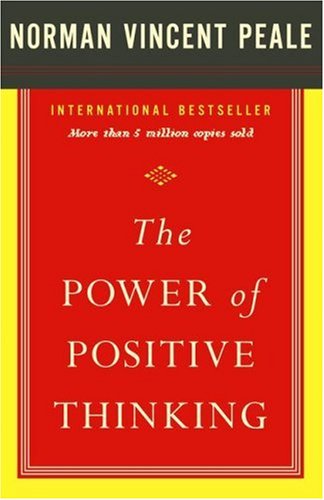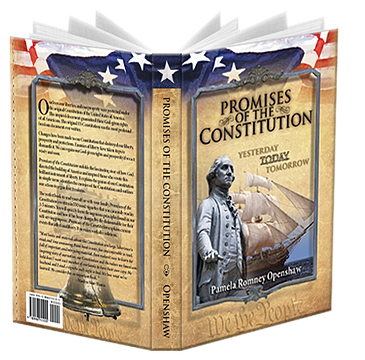Theme: Life and the Pursuit of Happiness
Scripture to Memorize this Week:
Mosiah 4:30: “But this much I can tell you, that if ye do not watch yourselves, and your thoughts, and your words, and your deeds, and observe the commandments of God, and continue in the faith of what ye have heard concerning the coming of our Lord, even unto the end of your lives, ye must perish. And now, O man, remember, and perish not.”Apprentice
Weekly Habits
-SAR or other time planning tool. Discuss your studies with your parents in a weekly meeting.
-Read a poem a day to "Lexington" (p. 75)
-Memorize the scripture this week: Mosiah 4:30
-Summary sheet to hand in
Study (Know)
Read/watch all of the following to increase your knowledge:
1. Read The Power of Positive Thinking for Teens
We hope you’ll read this book at the beginning of your study week, because we want you to have plenty of time to practice these principles that have the power to change your life! If you own the book, mark your favorite parts, and circle your favorite quotes.If you don't have the teen version, here is a free version of the original book. Note: Since this original book is longer than the teen version, if you need to skip study numbers 4, 5, and 6 (below) then you can. We'd prefer you do them all of course!
2. As you read the book, make a brainstorming list of ideas of how a person can become more faithful and positive in thoughts and words. This list doesn't mean you have to use all the ideas; it's just a brainstorm.
3. Watch or read this talk by Elder Holland called "The Tongue of Angels." Take notes as you watch it, or highlight as you read it. At the end, write a summary of the main points in the talk.
4. Find and watch/read one more talk or article that backs up the principles in the book. You could do a search on LDS.org using words like attitude, gratitude, words, faith, charity, pray, optimism, etc. Take notes as you watch the talk, or highlight if you're reading it. At the end, write a summary of the main points of the talk.
5. Find 5 additional scriptures and 5 additional quotes that back up the principles in this book. Record them in your notebook.
6. Do a word study on a word that you found interesting during your study this week.
Teach (Understand)
1. After doing the above five "Study" items, find a quiet place to ponder. Write for 30+ minutes on what you think and feel about these principles. What difference do you think it could make in your life if you change your habitual thoughts and words to be more filled with faith, gratitude, and positivity? What are you willing to do to make that change? How much time and effort do you think it will take? Is it worth it to you?AND choose one or more of the following inspirements:
- Create your own “game plan” of how to become more positive and faithful in your thoughts and words. The following inspirements are ideas you could include in your game plan, or create your own ideas. Use your “game plan” for a full day, or longer would be better. If you need reminding, you could post signs around the house, tell your family what you’re doing, or use a timer or alarms. Record and come ready to teach the class what you did and what you noticed.

- Write a list of positive statements either from this book, or make up your own. Post them in a place where you’ll see it at least twice a day, like where you eat meals or brush your teeth. This week each time you see the list, say these (ideally aloud). Focus on feeling them as you say each one. Did this habit start to change your mood or your outlook on life? Come prepared to teach us what you did and what you noticed.
- Find a place to quietly ponder. Prayerfully write a list of things and people for whom you are praying, as well as things for which you are grateful. Each time you pray, use this list to remind you to make your prayers more meaningful, powerful, and more connecting to Heavenly Father.
- In a quiet place, ponder and make a two-column list. On the left, list the things you’re stressed or sad about in your life, or the negative thoughts you think most often. On the right, create a positive/faithful statement about each of those things. For example, “I feel lonely” could turn into “I am reaching out to others in friendly ways.” “I don’t have enough time” could turn into “God is helping me be a wise steward of the time He gives me. I am focused, efficient, and productive.” Then post this list in a place where you can read the positive side twice each day. What have you noticed after doing this for a while?

- Once a day for a week, say a five-minute prayer that is only gratitude. Record how this changes your attitude.

- Give more than you get. For one full day choose to focus only on giving, and not on getting. Record what you did and how you felt.
- Write the list of power prayer tools on page 40-41. Use them in every prayer this week. Record what you did and how it affected your attitude as well as your relationship with God.
- For one full day, be very watchful of your own thoughts. What percentage would you guess of your thoughts are negative and positive? For a full day, every time you notice yourself have a negative thought about a thing or person or event, stop for a moment, and think or say three positive things about that thing or person or event. Do this each time you notice a negative thought throughout the day. At the end of the day, record your experience and your thoughts about it.
- Watch the video below about how to create a vision board. Then create your own vision board. Stand in front of it twice a day and visualize/feel that you’ve achieved those goals. Some people use vision boards for worldly goals, but you can also use them to help with higher goals like attaining Christlike qualities, eating healthy, exercising, service, education, saving money for an LDS mission, being a George Washington-type leader, having a happy and close family, an organized desk or room, studying scriptures or journaling, achieving goals in Scouting or Personal Progress, and so on.
Choose ONE of the following inspirements:
- Record what you did in the Teach inspirement(s). Come to class ready to share what you did and how it affected you. Habits like these are powerful only if you keep working on them. How are you going to keep working on what you’ve been doing?
- Or choose a Serve inspirement from apprentice or master level.





